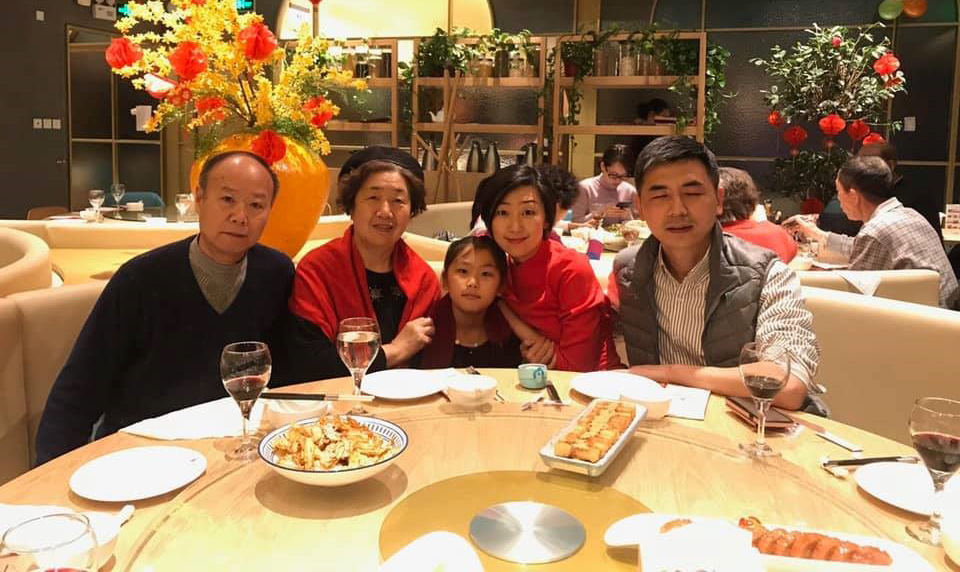Celebrating Lunar New Year

Michelle Liu enjoys celebrating Lunar New Year with her family.
In summary
- Lunar New Year is celebrated by more than 1.5 billion people around the world
- Members of the Swinburne community share examples of how they celebrate Lunar New Year
- This year marks the Year of the Tiger
Lunar New Year is celebrated by more than 1.5 billion people around the world, including many of us in the Swinburne community. While originating in China, Lunar New Year is celebrated in Korea, Vietnam, Malaysia, Singapore, Thailand, Philippines and Indonesia – places where there has been a strong Chinese influence.
The start of Lunar New Year is determined by the lunar calendar and takes place on the new moon between January 31 and February 15. This year, it falls on Tuesday 1 February and is the Year of the Tiger.
We spoke with members of the Swinburne community to learn more about the Year of the Tiger, their favourite childhood memories and to understand what Lunar New Year means to them.
Year of the Tiger

Individuals born during the Year of the Tiger may be known for these characteristics.
Each Lunar New Year has a zodiac animal, according to Chinese mythology. This year is Year of the Tiger. If you were born in 1926, 1938, 1950, 1962, 1974, 1986, 1998 or 2010, you were born during the Year of the Tiger and you may be known for your courage and ambition.
‘They are fierce people who take risks and are brave, mighty, charming and sometimes stubborn,’ said Michelle Liu, Recruitment Manager for North Asia.
Change Manager, Ming Lei believes Tigers love a good challenge and are active in life.
‘Tigers are confident, courageous, enthusiastic, and ambitious. I have a few Tigers in my extended family and I can definitely say, they stand out from the crowd,’ said Ming.
A time for family and friends, but most importantly for ourselves
In 2022, Lunar New Year offers the chance to reconnect and celebrate with family and friends after another year of ups and downs thanks to the coronavirus pandemic.
For Nhu Nguyen, Country Manager at Swinburne’s Vietnam Office, Lunar New Year is an important time for family, but just as important to reflect and recharge for the year ahead.
‘Lunar New Year is a precious occasion for family. Wherever we are, and no matter how busy we are, we leave it all behind. It is not only a time that we spend with our family, but also a time to focus on ourselves,’ said Nhu.
“To me, I put more weight on spending time with myself. After a long year of work, facing many ups and downs, we all need to recharge and being with family is the best way to do that. When we return home to where we belong, it always makes me feel that I am loved and cared for being surrounded by my loved ones.”
Delicious dishes and childhood memories
Bruce Li, Manager, Channel and Partner Success, recalls childhood memories of midnight fireworks and his family’s New Year feast – including a favourite dish full of tradition and nostalgia.
‘My favourite dish is Eight Treasure Rice. In Chinese it’s called Babaofan. It’s a traditional and popular dish made of sticky rice with lotus seeds, red dates, longan, melon seeds and raisins on the top. The Eight Treasure Rice has a good representation of longevity, harmonious marriage, auspiciousness, sweetness, and smooth things, in addition to the meaning of reunion.’ said Bruce.

A Lunar New year feast including dumplings cooked by Bruce Li.
For Ming, her favourite childhood memories also centre on food.
‘Without a doubt, making dumplings with the extended family is top of the list. Relatives come from everywhere to celebrate together and there are never enough chairs to sit everyone,’ said Ming.
Happy Lunar New Year!
We wish all our students and staff acknowledging the Lunar New Year a safe and happy celebration. May this new year be filled with happiness, prosperity, and many precious moments with your loved ones.
Diversity at Swinburne
At Swinburne, we cultivate and respect the strength that cultural diversity creates. Swinburne was the first university in Australia to launch a Charter of Cultural Diversity, which reaffirms our acknowledgement and respect for the many cultures that make up the Swinburne community.
-
Media Enquiries
Related articles
-

- Education
- University
Swinburne named MYOB Education Partner of the Year
Swinburne University of Technology has been announced as the 2024 MYOB Education Partner of the Year.
Friday 18 October 2024 -

- University
New programs at Swinburne set the benchmark for modern finance and accounting education
Swinburne unveiled its new postgraduate courses in Finance and Accounting at the Industry Connect: Accounting and Finance Career Expo
Read more (New programs at Swinburne set the benchmark for modern finance and accounting education )Tuesday 01 October 2024 -

- University
Donor-funded scholarship elevates university experience for Swinburne student
As a recipient of one of Swinburne’s donor-funded scholarships, Lexi Boan received financial support as well as networking and mentoring opportunities
Monday 07 October 2024 -

- University
- Sustainability
Bold leadership needed to tackle climate crisis
Swinburne Chancellor Professor John Pollaers OAM has used his opening remarks at the 2024 Chancellor’s Oration to urge Australia’s business, government, and academic sectors to step up.
Thursday 10 October 2024 -

- University
- Media and Communication
Swinburne enters top 100 in Research Quality in global university rankings
Wednesday 09 October 2024

